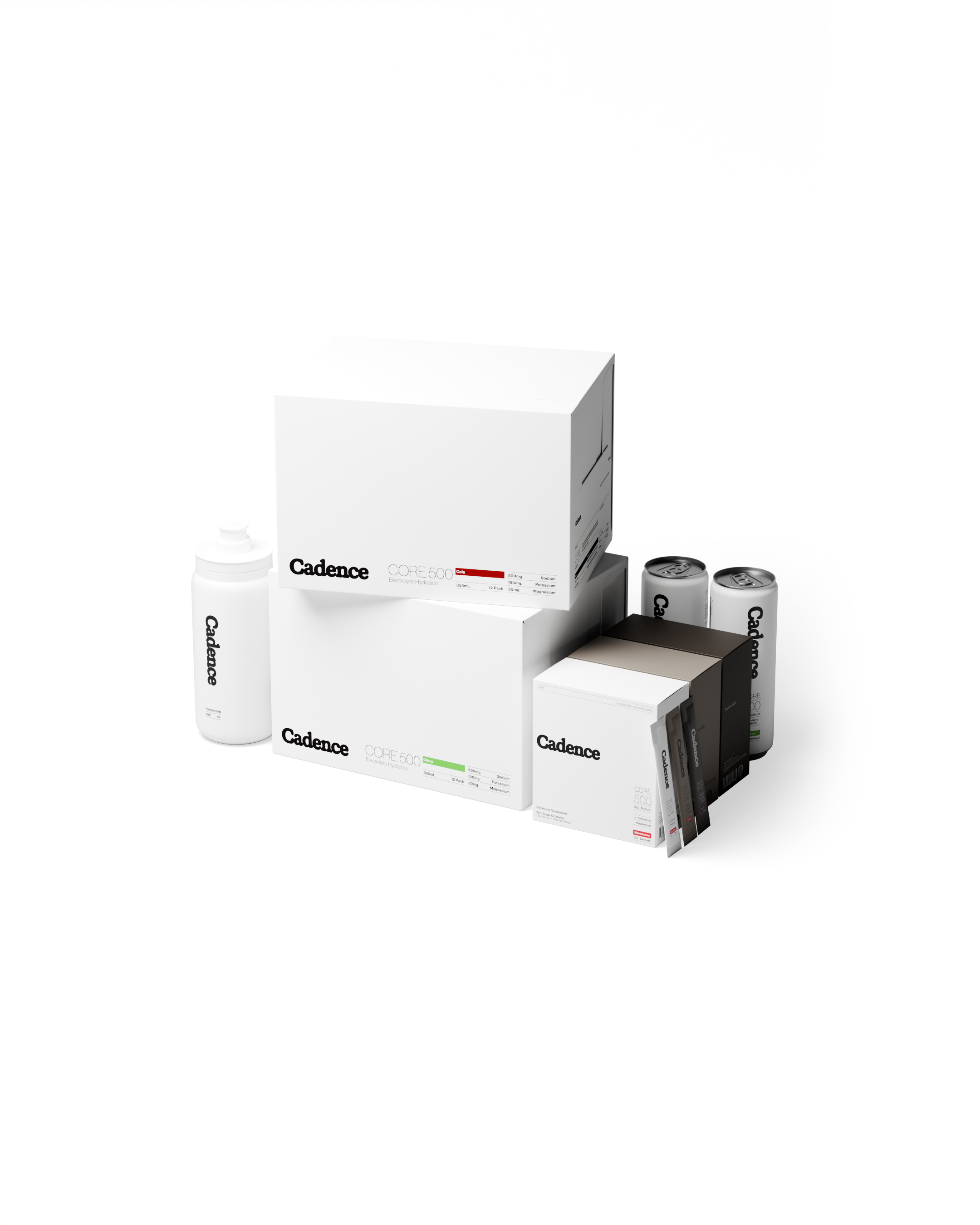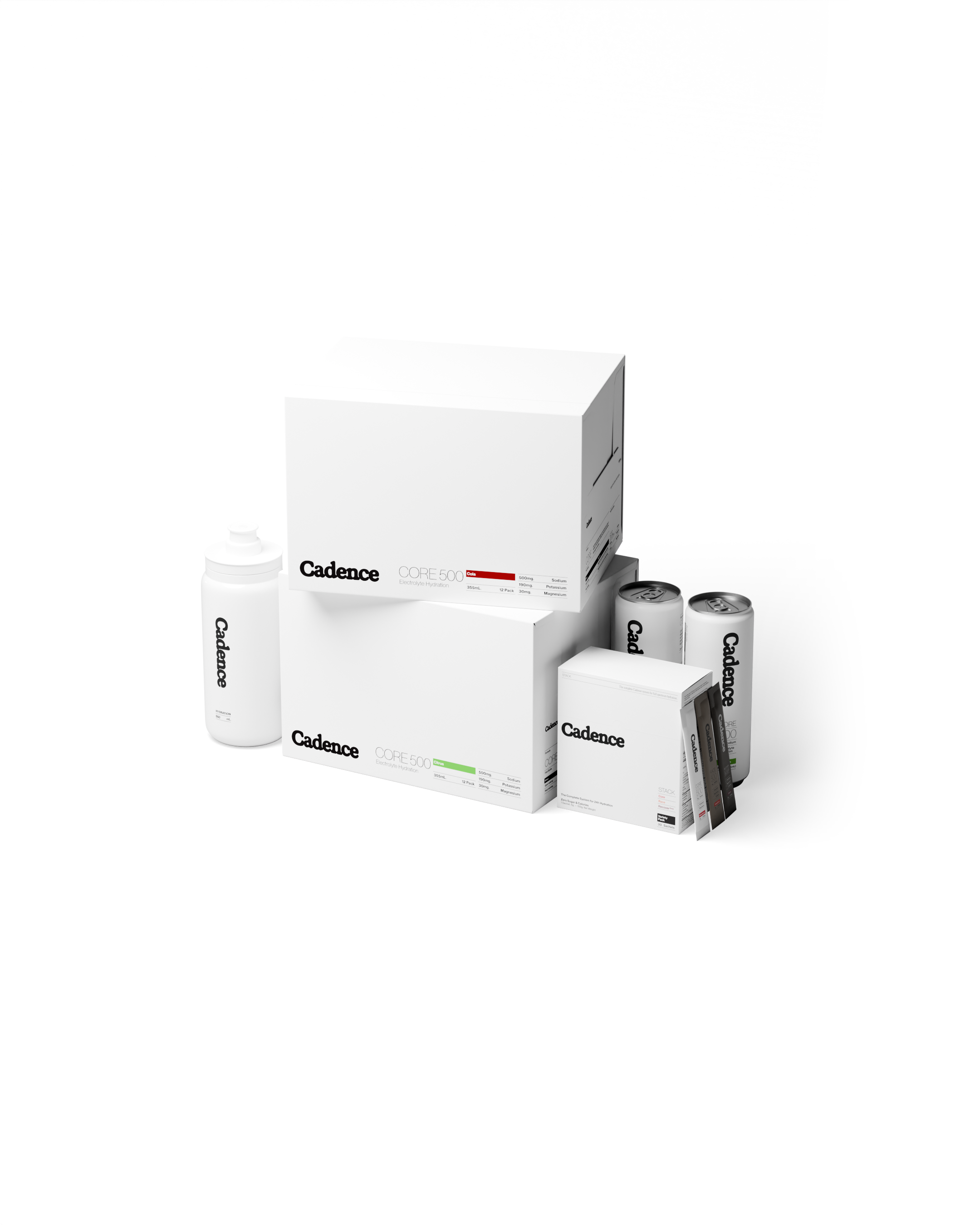Introduction
Dehydration is often overlooked in our daily lives as a factor which affects our cognitive function, potentially impairing our mental capabilities. Through this article, we’ll explore the links between hydration and brain function, explaining how a lack of fluids can affect more than our physical performance, but also cloud our thinking, memory, and decision making abilities.
What is Dehydration?
At its core, dehydration occurs when the body's fluid output surpasses its intake. It's a state not just exclusive to those who have physically exerted themselves, but also common in daily life. Generally, individuals may often be dehydrated upon waking, having not taken in any fluids overnight.
How Dehydration affects Cognitive Performance
Dehydration & Rehydration’s effects on Cognitive Tests
Water accounts for 75% of the brain’s mass. This raises questions surrounding the effects of dehydration on cognitive performance. A study (Zhang et al., 2019) out of China researched the effects of dehydration and rehydration on 12 men’s cognitive performance, taking into account assessments such as short term memory, attention and mood.
The study found that dehydration resulted in declined scores in vigour, esteem related affect, short term memory in addition to an increase in errors in cognitive tasks.
Following rehydration, significant improvements were observed in fatigue levels, total mood disturbance, short term memory, attention and reaction times, in addition to better performance in cognitive tests.
The results imply that hydrated individuals perform better in cognitive performance tests.
A Systematic Review of Dehydration’s Effects on Cognitive Performance
A systematic review of 24 trials with 493 total participants (Dube et al., 2022) found that 16 publications consider significant dehydration as when >2% of body mass is lost. 5 more articles found synergies between dehydration (>3-5% loss of body mass), heat stress, and limited fluid intake as impairing cognitive performance in addition to potentially causing mood disturbance, fatigue and rate of perceived exertion.
Magnesium’s Effects on Mood & Sleep
Magnesium is a key electrolyte, playing an essential part in energy production at the cellular level. Optimal levels in the body may also aid muscle relaxation and potentially improve sleep quality, which can have a positive impact on mood and so cognitive performance.
One randomised, double blind, placebo-controlled trial found that magnesium supplementation normalised blood magnesium levels, which in turn reduced depressive symptoms more so than the placebo experiment, suggesting that magnesium supplementation may improve mood (Rajizadeh et al., 2017).
Furthermore, magnesium has been shown to be involved in metabolism regulation and the maintenance of homeostasis in all tissues within the body, including the brain. It plays a role in nerve signal transmission as well as preserving the blood-brain barrier integrity (Maier et al., 2022)
Electrolyte Consumption & Hydration
Dehydration is a state caused by excessive fluid loss from sweating, vomiting or diarrhoea. When the body loses water through sweating during exercise, it affects the electrolyte balance.
This makes replenishing lost electrolytes through diet or potentially electrolyte supplementation important for maintaining proper hydration (Ilyas et al., 2018), (Millard-Stafford et al., 2021).
Sources of Electrolytes
There are many dietary sources of electrolytes available; including but not limited these below:
Potassium: Bananas, salmon, white beans, avocado, potatoes, milk & mushrooms.
Sodium: Dill pickles, clams, table salt & cheese.
Magnesium: Spinach, pumpkin seeds, lima beans, tuna, brown rice & almonds.
Phosphorous: Yellowfin tuna, tofu, milk, chicken, scallops, pumpkin seeds & quinoa.
Calcium: Milk, cheese, spinach, tofu, yoghurt & trout.
Many dietary sources are great for increasing intake of singular electrolytes, so if you want to get all of your electrolytes from food, then combining foods may be a good idea.
If you want to further support your electrolyte intake, then take a look at the Cadence ™ Electrolyte Drink, a convenient electrolyte beverage that delivers 500mg of Sodium Chloride, 295mg of Magnesium Lactate, and 190mg of Potassium Chloride. It contains 0g sugar, with no calories and is naturally sweetened. It is also vegan and caffeine-free, making it suitable for those on particular diets, and also perfect for consuming at any time of the day.
Conclusion
Maintaining hydration and electrolyte balance has been found to play a role in cognitive performance and mood. The research discussed underscores that maintaining proper hydration can help maintain mental functions, while electrolyte consumption, including magnesium, may aid this effect by stabilising mood and supporting overall cognitive capabilities. Whilst you're here, you should also take a look at our Core Hydration Electrolyte Sticks. If you would like to sample our full range of electrolyte sachets, then you can also check out our variety pack of hydration sticks.
Frequently Asked Questions (FAQs)
What is dehydration?
Dehydration occurs when the body's fluid output exceeds its intake, affecting not just athletes but also people going about their daily life.
How does dehydration impact cognitive performance?
Dehydration has been shown to negatively affect cognitive performance, leading to decreased vigour, esteem related affect, short term memory, and an increase in cognitive task errors. Hydration has the inverse effect, improving mood, memory, attention, reaction times, and cognitive test performance.
How can magnesium affect mood and cognitive performance?
Magnesium, an essential electrolyte, may improve mood by reducing depressive symptoms, as found in a controlled trial, in addition to improving sleep quality. This improvement in sleep and mood may positively impact cognitive performance.
What role does electrolyte consumption play in hydration and cognitive performance?
Electrolyte consumption is instrumental for maintaining proper hydration, especially after fluid loss through sweat, vomiting, or diarrhoea. A balanced electrolyte intake supports hydration, which is essential for optimal cognitive performance and mood stabilisation.
References
Zhang N, Du SM, Zhang JF, Ma GS. Effects of Dehydration and Rehydration on Cognitive Performance and Mood among Male College Students in Cangzhou, China: A Self-Controlled Trial. Int J Environ Res Public Health. 2019 May 29;16(11):1891. doi: 10.3390/ijerph16111891. PMID: 31146326; PMCID: PMC6603652.
Dube A, Gouws C, Breukelman G. Effects of hypohydration and fluid balance in athletes' cognitive performance: a systematic review. Afr Health Sci. 2022 Mar;22(1):367-376. doi: 10.4314/ahs.v22i1.45. PMID: 36032481; PMCID: PMC9382508.
Rajizadeh A, Mozaffari-Khosravi H, Yassini-Ardakani M, Dehghani A. Effect of magnesium supplementation on depression status in depressed patients with magnesium deficiency: A randomized, double-blind, placebo-controlled trial. Nutrition. 2017 Mar;35:56-60. doi: 10.1016/j.nut.2016.10.014. Epub 2016 Nov 9. PMID: 28241991.
Ilyas, Ermita & Bardosono, Saptawati & Surapsari, Juwalita & Freisleben, Hans-Joachim. (2018). Effects of Electrolyte Beverage on Preventing Dehydration among Workers in Different Environmental Temperature. World Nutrition Journal. 1. 38. 10.25220/WNJ.V01i2.0007.
Millard-Stafford M, Snow TK, Jones ML, Suh H. The Beverage Hydration Index: Influence of Electrolytes, Carbohydrate and Protein. Nutrients. 2021 Aug 25;13(9):2933. doi: 10.3390/nu13092933. PMID: 34578811; PMCID: PMC8465972.

